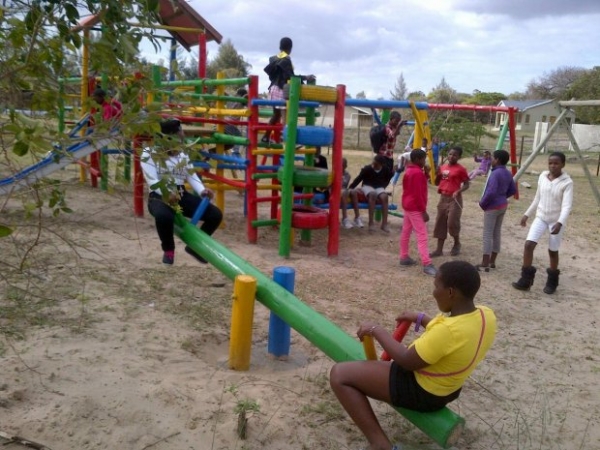

A safe park in Bergville, KZN. The Isibindi model is a community based response to orphans and vulnerable children affected by HIV and AIDS. It was developed by a non-profit organisation, the National Association of Child Care Workers (NACCW). Photo supplied by NACCW.
22 January 2015
At 22 years of age, Brightness Khumalo, has found a job that she describes as hard but which she clearly finds rewarding.
Khumalo is a child and youth care worker (CYCW) from Bergville, KwaZulu-Natal. She became a CYCW in June last year at the Bergville Wellbeing Centre. Khumalo says she loves the work she does.
She has become an expert at working with orphans, and doing work that helps abused and disabled children in her area.
“I won’t lie. Being a care worker is hard work, but if you work hard you achieve more. I became a care worker after seeing a poster which advertised the programme. I applied and I was given a chance. I work with children who are orphans, who have been abused, and who have disabilities. We uplift them by teaching them life skills, counselling homework supervision, and we also engage them in sport activities such as netball and soccer,” said Khumalo.
The Isibindi model is a community based response to orphans and vulnerable children affected by HIV and AIDS. It was developed by the non-profit organisation the National Association of Child Care Workers (NACCW). Its plan is to train 10,000 mainly rural young women to be CYCWs and for them to reach thousands of kids and youth. It is now 18 months since it was rolled out.
Khumalo works a seven-day week as a care worker. She matriculated in 2011, and went on to study Human Resources Management, but never completed the course.
Being an orphan herself, after her mother passed away when she was six, Khumalo says she ended up living with her grandmother, aunt, uncle and her younger brother.
Ashika Pramlall from the NACCW said, their model involves home visits and community interventions. Examples of activities that they provide include counselling, teaching life and social skills, and supervising homework. They also facilitate playing and structured activities supervised by the CYCWs.